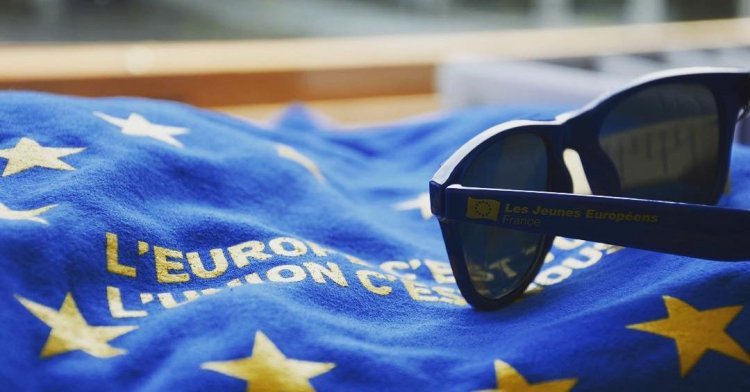Political society is now on the increase, activity is growing, and a request for federalism remains relevant, with various political movements supporting it, including the so-called non-systemic opposition, which is conventionally divided into liberals, left and nationalists.
“Return of budget federalism, local self-governance, give cities and regions money and power” - the slogan of the movement of liberals, for example, The Republican Party of Russia - People’s Freedom Party. According to leaders of the party, when Putin was creating his “vertical of power” (after a series of terrorist attacks), fearing the disintegration of the country, he promised order and prosperity. However, the vertical turned banal, sucking the money and resources of the regions, as well as presenting non-transparent arrangements with a number of regions.
The cause of extreme discontent of millions of citizens is the current system of governance. Continuing this policy will lead to the destruction of the country and the growth of separatism.
Representatives of the Russian united democratic party “Yabloko” believe that Federalism is designed to act in the interests of the entire population of a country or a specific area, rather than government business and national groups”. “The unity of the country can only be achieved through broad rights of regions”, state the policy documents of the National Democratic Party of Russia (not yet registered). “Asymmetric federation” in which the republics have more rights than the others has nothing to do with federalism. All regions of Russia should have the same rights. The point is not to take away the powers of the republics and to elevate regions and areas.
Criticism of the system of Federal relations comes from the “Left front”, combining a number of left-wing radical, anti-government and youth trends. As stated by one of the leaders Ilya Ponomarev, federalism “partially collapsed”.
Meanwhile, a request for the development of federalism in the Russian society is still relevant, and comes from almost all political currents - both pro-government and anti-government.
Recently, the Russian parliament approved changes to legislation aimed at democratization of the political system, in particular, return to the election of governors. This was done partly because of the threatening growth of protest movements. In a society there is an update query on the new faces among the politicians. The “angry citizens” are predominantly young.
“The post-election period in Russia will be characterized by increasing political activity at the municipal and regional levels, where opposition and non-systemic parties direct their efforts and resources, says political analyst Andrei Makarychev (Nizhny Novgorod). The Kremlin wants to change something, but does not know exactly what it is”.
Another political analyst Oleg Podvintsev (Perm) believes that protest activity will increasingly move to regions, “The opposition activity in Russia is currently developing and will move further from region to region”, he writes. Many political analysts are of the opinion that the inequality of subjects, listed in the Constitution, provokes conflicts in the “center – regions” axis.
The so-called vertical power had been designed to preserve the unity of the country, but now it does not satisfy anyone. Stagnation in the federal building was largely caused by the lack of elections - heads of regions and the members of the Federation Council (representative body of the regions). The question about the changes of the federal system is put forward by opponents as well as supporters of the current government. However, the Kremlin obviously does not see in federalism a tool for solving the problems Russian society faces, but only a threat to the ruling elite. Meanwhile, the government can no longer hold back the growing protest moods as more and more young people are becoming engaged in political activity. The paradox is that, despite the European choice of the Russian post-Soviet elites, youth movements, funded by the Kremlin, often have an anti-Western orientation, at least in their slogans. On the other hand, young people are looking at the European choice as a passive-evolutionary path, and not innovative mobilization.
As the well known Russian political analyst Mikhail Remizov writes “Russia and Europe - the old dilemma of Russian culture, which has always provoked us to reflect on the fact whether Russia is a part of Europe, if not, should it be, and if should, in what way would that be?”. Remizov holds the idea that this dilemma has become a challenge with two unknowns, referring to the processes of transformation taking place in Europe. In his opinion, “the face of European sovereignty is not formed yet”. In general, the author advocates the “European choice”, but warns against its apparent simplicity, “against instinctive belief that somewhere nearby a better future is being built, the adherence to which is the salvation for those who have not managed to build their own future”.
It is currently very important for the young Russian people to build integration ties with European Federalists and understand European problems. As the period of political passivity ends, young people should take advantage of this window of opportunity and go from exploring ideas to institutionalization, clearly identify their views on Russia’s future and its relations with Europe. The first “fully post-soviet generation” is now coming into active life. The political future of Russia largely depends on its choice.

1. On 28 July 2013 at 06:18, by Worden Report Replying to: Russia, Federalism & Europe
Replying to: Russia, Federalism & Europe
The Russian federation leans heavily toward consolidation, whereas the European Union risks retaining too much governmental sovereignty in the states (risking dissolution). See http://thewordenreport.blogspot.com/2011/05/on-eclipse-of-russian-federalism.html
Follow the comments: |
|
